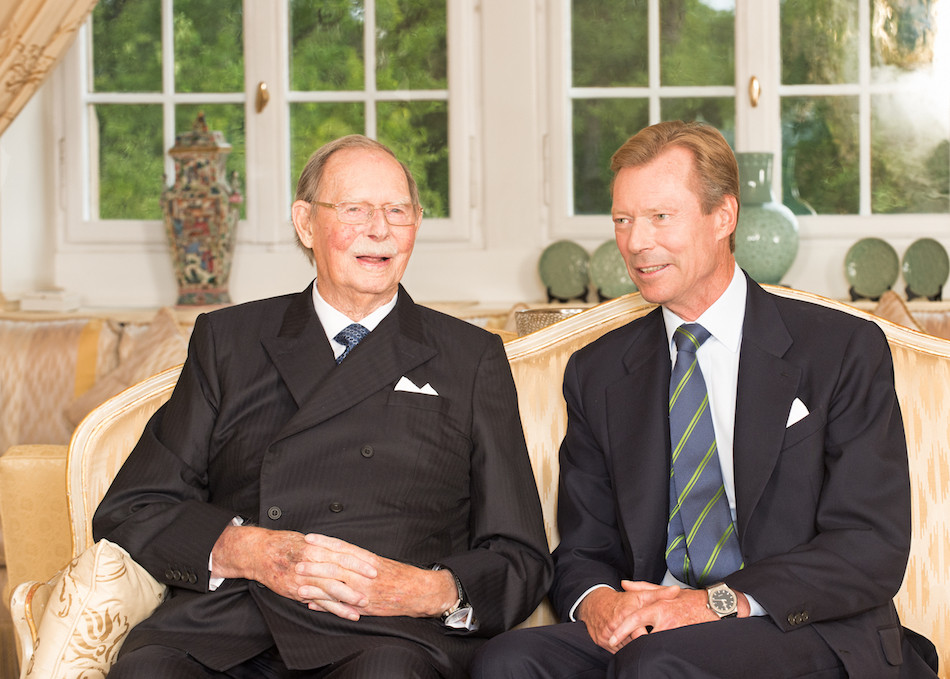The history books will remember Grand Duke Jean kindly. During his reign Luxembourg emerged from the shadow still cast by the recent Nazi occupation to become a vital, open, multinational country and a key member of the European Union, which it helped found while he was crown prince.
As the grand duchy started on the path to being one of the most important financial services centres in the world and a key player in the satellite industry, it was a shining example of how a country can successfully diversify its economy and punch above its weight on the international stage. And it did so under Grand Duke Jean’s tutelage as head of state. Even if the reigning monarch’s real political powers were negligible, Grand Duke Jean’s awareness, knowledge and experience helped steer the country. He may have appeared outwardly to be a discreetly charming man, but he clearly learned from his mother, Grand Duchess Charlotte, that listening to the people and taking an interest in their lives was the key to earning their respect.
Political interest
Politicians who served during the last three decades of his reign on Tuesday recalled a man who was fully engaged in the events of the day. Former prime minister Jacques Santer told RTL TV that the grand duke did everything in his power to get politicians and civic society to “pull together” when Luxembourg was faced with the steel crisis in the 1970s. “I think his greatest achievement for Luxembourg was that we managed to change track so that the younger generation would have a better life than before.”
Former foreign minister Jacques Poos said that the grand duke had always shown great interest in his host country and diplomatic relations on the state visits they undertook. “I noticed that doors opened up for Luxembourg around the world, even in Japan. He truly performed his role as head of state.”
Normandy landings
What’s more, the grand duke, affectionately referred to as “Jang” by Luxembourgers, was a man for whom family, respect and kindness meant much. A graduate of Sandhurst royal military academy, he had the discipline of a soldier and was keen to be seen playing an active role in WWII. As a volunteer in the Irish Guards he famously took part in Operation Overlord, landing in Normandy on 11 June 1944 and made sure he was there on 10 September when allied troops liberated Luxembourg City. He was later made honorary Colonel of the Irish Guards and on occasion took part in the Trooping of the Colour to mark the official birthday of Queen Elizabeth II.
Grand Duke Jean also served on the board of the Luxembourg Olympic committee, 1946 to 2000. For many years, he was also Luxembourg’s representative on the International Olympic Committee and, in that capacity, attended winter and summer games throughout the second half of the 20th century.
Scouting and art
And, of course, he was the Chief Scout of the Luxembourg Scouts Association since it was founded in 1945. Many local scouts including Déi Gréng’s Djuna Bernard (a former international scout commissioner) were among those mourning the grand duke on social media on Tuesday morning. Fellow former scout Carole Miltgen wrote on Facebook that she recalled being impressed that the grand duke washed his own mess tin at camp.
In his later years Grand Duke Jean became passionate about art, perhaps prompted by the interest shown by his wife, Grand Duchess Joséphine-Charlotte, who was a keen collector. Jean not only painted but also supported art to such an extent that Mudam, that monument to contemporary art on Kirchberg, is officially named after him--Musée d'Art Moderne et Contemporain Grand-Duc Jean.
Giving way to the modern era
By the time the museum was opened, Grand Duke Jean was no longer the head of state. Like his mother before him, he knew when it was time to step aside and let the next generation take the reins. The timing of the announcement of his abdication, at the age of 79, was a surprise, but in allowing his eldest son to accede to the throne at the age of 45 he was acknowledging that Luxembourg needed a more modern touch to move forward in the 21st century.
